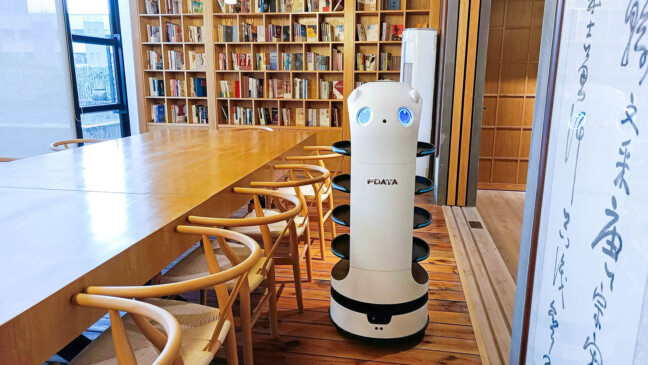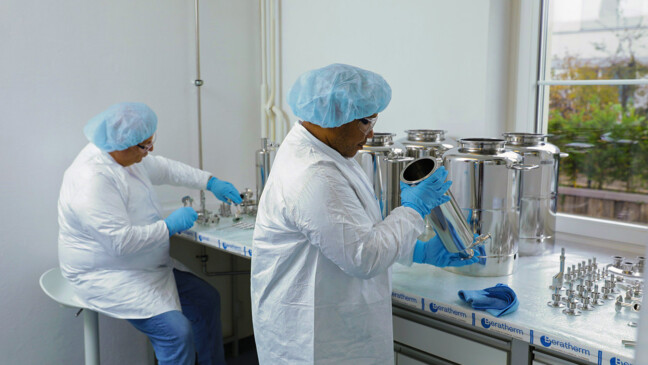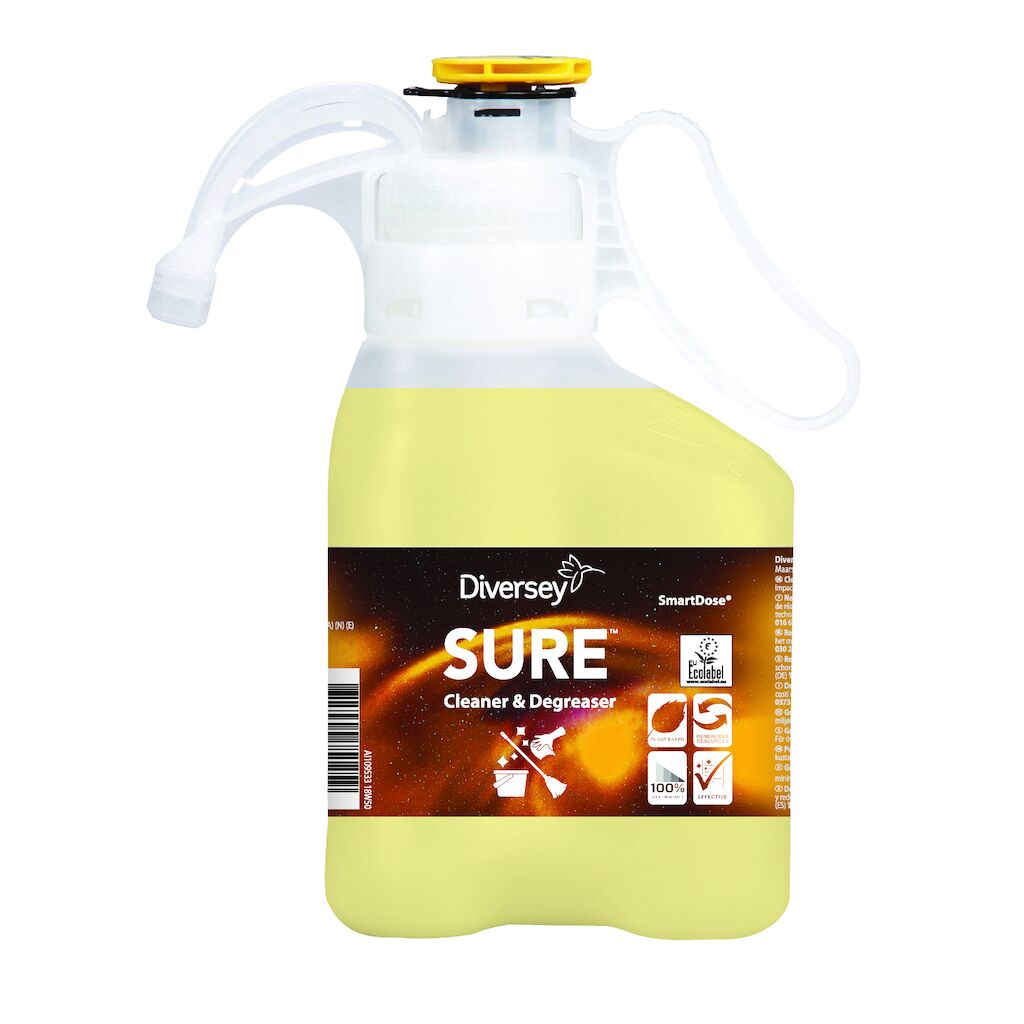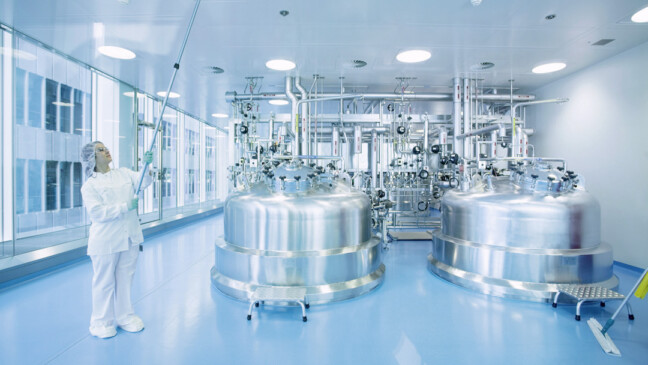
06.10.25
Hygiene in commercial kitchens: essential measures
In commercial kitchens, hygiene is more than just cleanliness – it is part of daily responsibility. Those who follow clear procedures and internalise hygiene standards not only protect guests, but also the entire team and the reputation of the business.
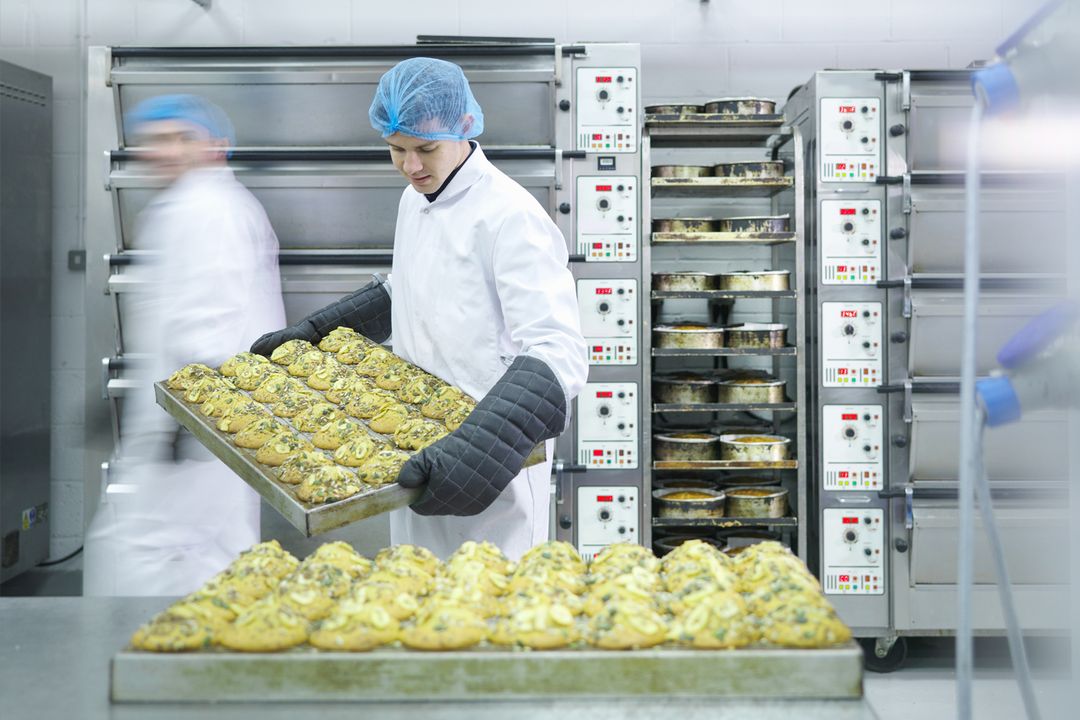
The hygienic maintenance of commercial kitchens is one of the most important challenges in the catering industry. It is not only crucial for food safety, but also essential for compliance with legal requirements and for maintaining the company’s reputation. Anyone working in professional cleaning or facility management knows that only structured, regularly reviewed and consistently implemented processes can guarantee consistently high standards – ad hoc measures are no longer sufficient.
Risk analysis as the foundation of every hygiene strategy
An effective hygiene concept begins with a thorough risk analysis. The internationally recognised HACCP concept (Hazard Analysis and Critical Control Points) forms the basis for this. It serves to identify and control potential risks in all phases of food processing – from delivery and storage to preparation and serving to guests. Every step must be documented in a traceable manner. Errors or gaps in this system can not only lead to health risks, but also have serious legal consequences. That is why regular training is mandatory for all kitchen staff. Only well-trained staff can know and understand the established standards and consistently implement them in their daily work.
Work surfaces and material care: Focus on stainless steel
Stainless steel work surfaces dominate almost all professional kitchens – and with good reason. They are hygienic, durable and easy to clean. However, they require a great deal of care. Immediate, thorough disinfection is essential, especially after handling sensitive foods such as raw meat or fish. Microfibre cloths in combination with approved cleaning agents are usually sufficient for daily cleaning. However, special cleaning procedures are necessary for stubborn residues in order to prevent encrustation and germ formation. Important: Damp cloths must never be left on the surfaces, as this can promote the formation of limescale and the spread of germs. Dry wiping after cleaning is mandatory.
Device hygiene: detailed work with a big impact
Kitchen appliances are a particularly critical hygiene component, as they are constantly in contact with food and can easily become a source of germs. Cookers, combi steamers, dishwashers and refrigerators must be cleaned regularly – sometimes even daily. Grease-dissolving cleaners, descalers and, if necessary, disinfectants are essential for this. Refrigerators should be disinfected and checked at least once a month to prevent bacteria from forming. Extractor hoods, especially those with flame retardant filters, should be cleaned in the dishwasher every two to four weeks – otherwise grease deposits can build up, which are not only unhygienic but also a fire hazard.
Personal hygiene: consistency and control in everyday life
An often underestimated but hugely effective factor in kitchen hygiene is the personal hygiene of employees. Hygiene checks regularly show that this is where shortcomings often occur. Clear rules on work clothing (including daily changes), a strict ban on jewellery in the kitchen and the obligation to report symptoms of illness immediately are non-negotiable. Equally important is regular, correct hand washing – especially after using the toilet, handling raw food or coming into contact with potential sources of contamination. Only by setting an example and constantly raising awareness can staff hygiene become a matter of course.
Floors and sanitary areas: systematic cleaning cycles
Floors and sanitary facilities also play a key role in the overall assessment of a kitchen’s hygiene situation. Kitchen floors must be mopped daily with suitable disinfectants to prevent grease build-up and germ colonies. In particularly busy areas, it may be necessary to clean several times a day. Guest areas are usually subject to a weekly cleaning schedule, although more frequent cleaning may be advisable depending on the type of business. Sanitary facilities, including staff toilets and changing rooms, should be checked and cleaned several times a day. The use of high-quality cleaning agents not only protects against limescale and urine scale build-up, but also contributes significantly to odour control.
Pest prevention: protection through early measures
Pest infestation can jeopardise the operation of a catering business overnight. Prevention is therefore a top priority. Fly screens on windows, bait boxes at strategic points and regular visual inspections are the minimum standard. Immediate action must be taken at the first signs of infestation – the earlier a problem is detected, the easier, cheaper and more sustainable it is to solve. Continuous cooperation with a professional pest control company is standard practice in many businesses and a sign of responsible management.
Hygiene is both a management task and a team responsibility
Maintaining high hygiene standards in commercial kitchens is no coincidence, but rather the result of consistent planning, training and monitoring. Supervisors play a key role in this: they must not only define rules and enforce compliance, but also set an example through their own behaviour. Only when all employees understand the importance of hygiene and actively support it can an environment be created in which quality, safety and guest satisfaction can be combined at the highest level.
Image source: HauswartMagazin
